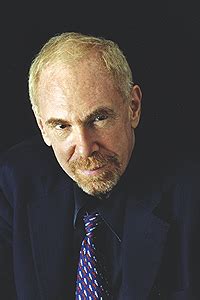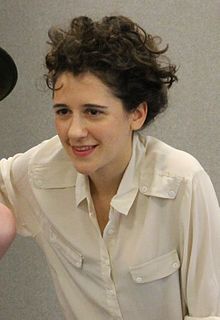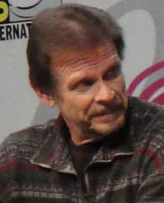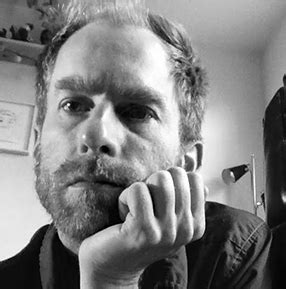A Quote by Thomas Steinbeck
When it comes to the form the narrative will take, whether first person, third person, or Aunt Grace's cat, I usually find that the story tells me which voice it prefers, and that often changes as I go along. And in the end it really doesn't matter as long as the author can rig those voices all in harness to pull the same load.
Related Quotes
The Voice did not consider itself a conventional magazine. It took me awhile to realize that it was named The Voice for a reason. They wanted voices. At the time, good magazine stories were still believed to be written in the third person based on the false belief they were more objective. Of course some conventional stories require third person, but in the really interesting stories - the ones I got do to at The Voice and Esquire - were about subjectivity, subjectivities.
First think of the person who lives in disguise, Who deals in secrets and tells naught but lies. Next, tell me what's always the last thing to mend, The middle of middle and the end of end? And finally give me the sound often heard During the search for a hard-to-find word. Now string them together, and answer me this, Which creature would you be unwilling to kiss?
Believe in yourself and in your own voice, because there will be times in this business when you will be the only one who does. Take heart from the knowledge that an author with a strong voice will often have trouble at the start of his or her career because strong,distinctive voices sometimes make editors nervous. But in the end, only the strong survive.
Trans voices are really underrepresented, and trans stories are really underrepresented, and when they are presented, they're often reductive. I was interested in putting a trans person and a trans narrative on stage that didn't fall into cliché, that thought a bit more deeply about the experience of being trans, and how those issues tie into things that we all experience. How we tell the story of our lives, versus what might have actually happened, and how we communicate to our former selves. All of those questions were really interesting to me.
I believe that the biggest mistake that most people make when it comes to their retirement is they do not plan for it. They take the same route as Alice in the story from "Alice in Wonderland," in which the cat tells Alice that surely she will get somewhere as long as she walks long enough. It may not be exactly where you wanted to get to, but you certainly get somewhere.
My first attempt at writing was very unstructured and formless, with shifting points of view. I was trying to understand how long form might work, and I realized I had something shapeless. It was a total car wreck. But I still felt I could pull it off. So I ditched that attempt and started writing in the opposite manner, in first person, with a driving narrative.
Part of life is a quest to find that one essential person who will understand our story. But we choose wrongly so often. Over the ensuing years that person we thought understood us best ends up regarding us with pity, indifference, or active dislike. Those who truly care can be divided into two categories: those who understand us, and those who forgive our worst sins. Rarely do we find someone capable of both.
If you're reading a book that I've written in the first person, without named characters, you will periodically perhaps as a reader remind yourself: Well, this is or isn't the author. This is a character.I think the second person turns that dynamic onto you, or situates it within you: This isn't really me, but what aspect of the character is really me? That creates a loop of seduction.






































